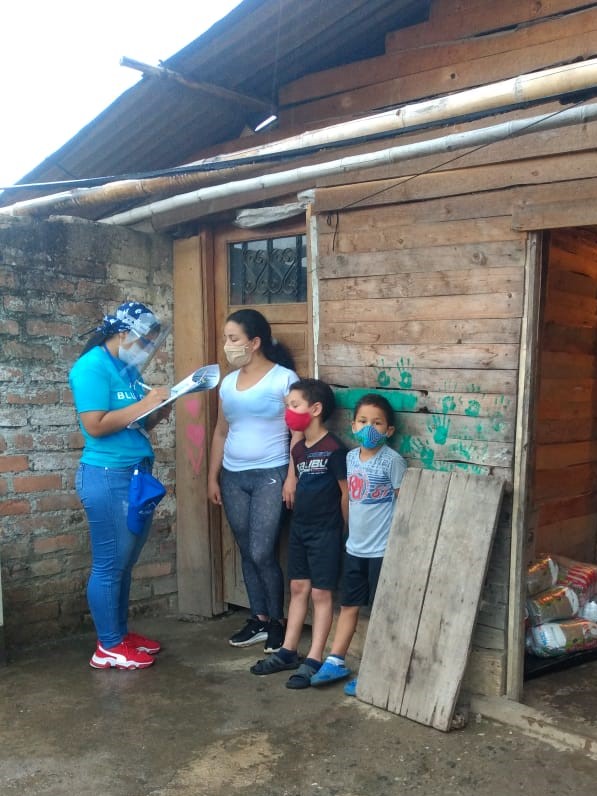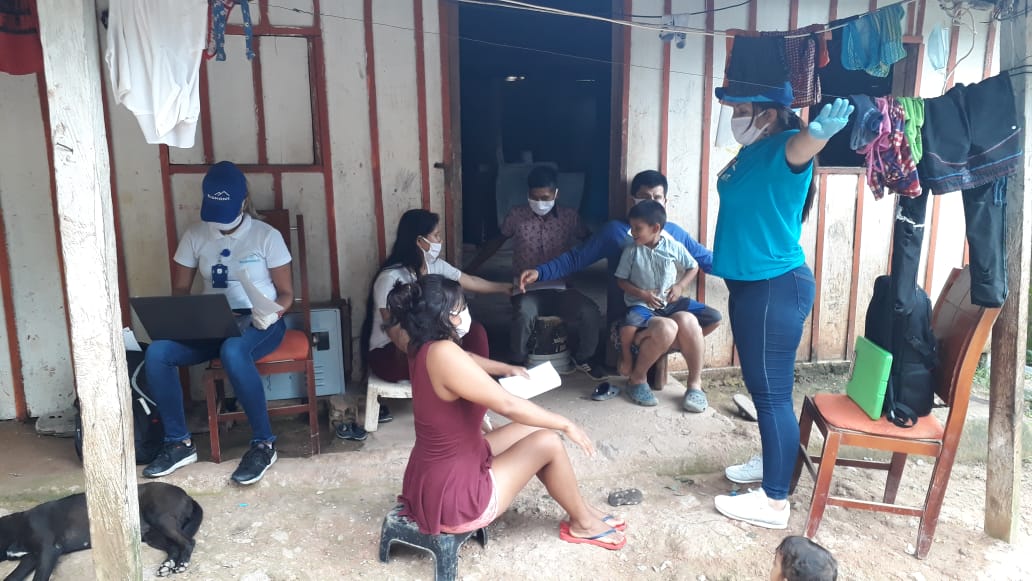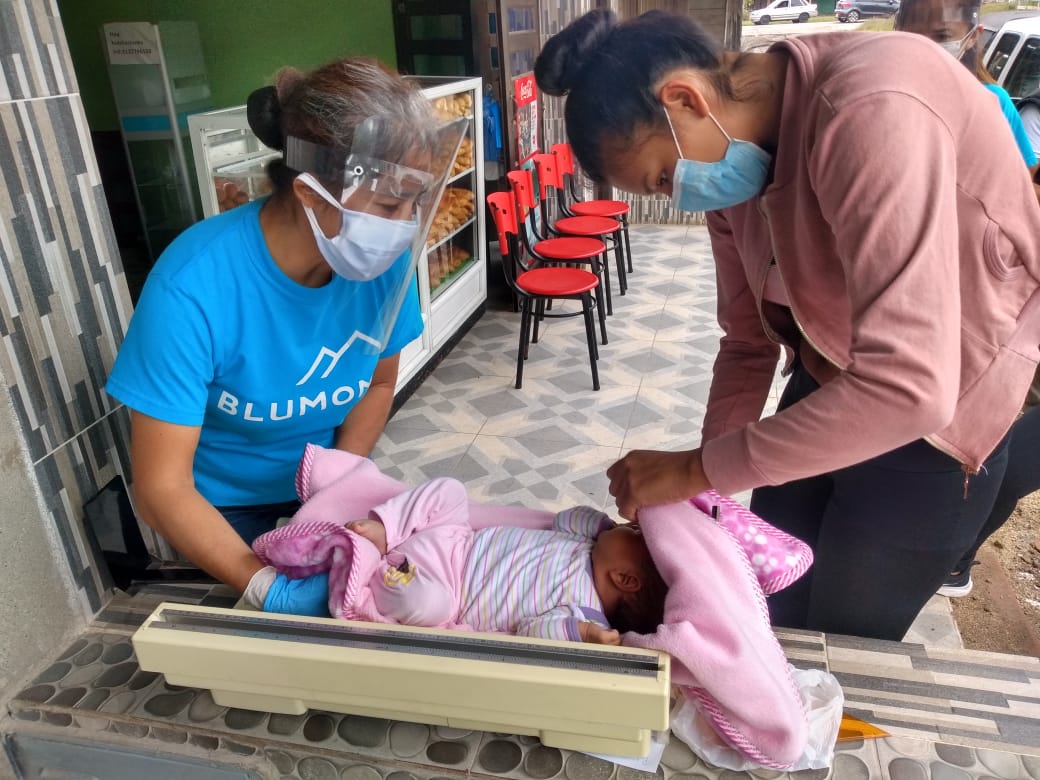In Colombia, more than 8 million people have been displaced by armed conflict, with women, children, Afro-Colombian and indigenous groups, and people with disabilities disproportionately affected.
Since 2008, Blumont has implemented the Closing Emergency Assistance Gaps to Aid Displaced Populations in Colombia (Closing Gaps) program, funded by the U.S. State Department’s Bureau of Population, Refugees, and Migration.
Blumont’s work covers a range of activities, from helping the newly displaced connect with humanitarian assistance and government services like healthcare and education, to building the institutional capacity of national and local governments to better support communities.

Team members in Colombia work with displaced victims to identify services available to help
Teams tailor projects to meet the unique needs of communities across the country, helping people cope with both the physical and psychosocial scars of trauma—rebuilding their communities and their lives.
One beneficiary in Popayán shared how this work has impacted her life: “When I started this activity, I thought I was not going to be able to finish it. I looked at it as difficult and as hard as displacement, but, in the path, you find strength, advice, and persons that find the best in you and push you to move forward.”

Blumont works with displaced communities in Colombia to improve health and well-being
An important aspect of the program is connecting displaced people to services and providers that can meet their needs. Amanda Rodríguez, a nurse on Blumont’s team in Popayán, shared her thoughts on the work:
My experience at Blumont serving the victims of forced displacement has focused on identifying their immediate needs, providing information so that they can access services. Also, educating them on a healthy lifestyle in the midst of adversities, and how to adapt to their new circumstances, while feeling supported by Blumont and government institutions.
After Blumont enters the areas where we work to benefit the populations experiencing forced displacement, we establish a relationship with local and regional authorities. Our work focuses on guaranteeing people have access to health and education services.
Accessing health services is essential for beneficiary families, because they are very susceptible to changes in their physical and emotional well-being in the face of the impact of living the experience of leaving their territory in a forced, often violent way. My nursing work extends to other areas such as health promotion and prevention, motivating individuals and families to protect and care for their well-being.

A Blumont team measures and weighs a young girl
Education is a right of children and young people and must be provided regardless of economic and social situations, which is why we monitor families with children of school age to ensure access. Education is fundamental for personal, emotional, and social development. It is a vital necessity for the progress of individuals, families, and societies.
Blumont’s intervention strategy not only supports the municipal administration in providing humanitarian care, but also on strengthening the capacity of the administration itself. Then, in the future, local governance has the tools and resources to take on the challenges of this care.
I find satisfaction in seeing the peace families have with access to healthcare services and when they adapt to their new circumstances—it is an example of courage and strength.



